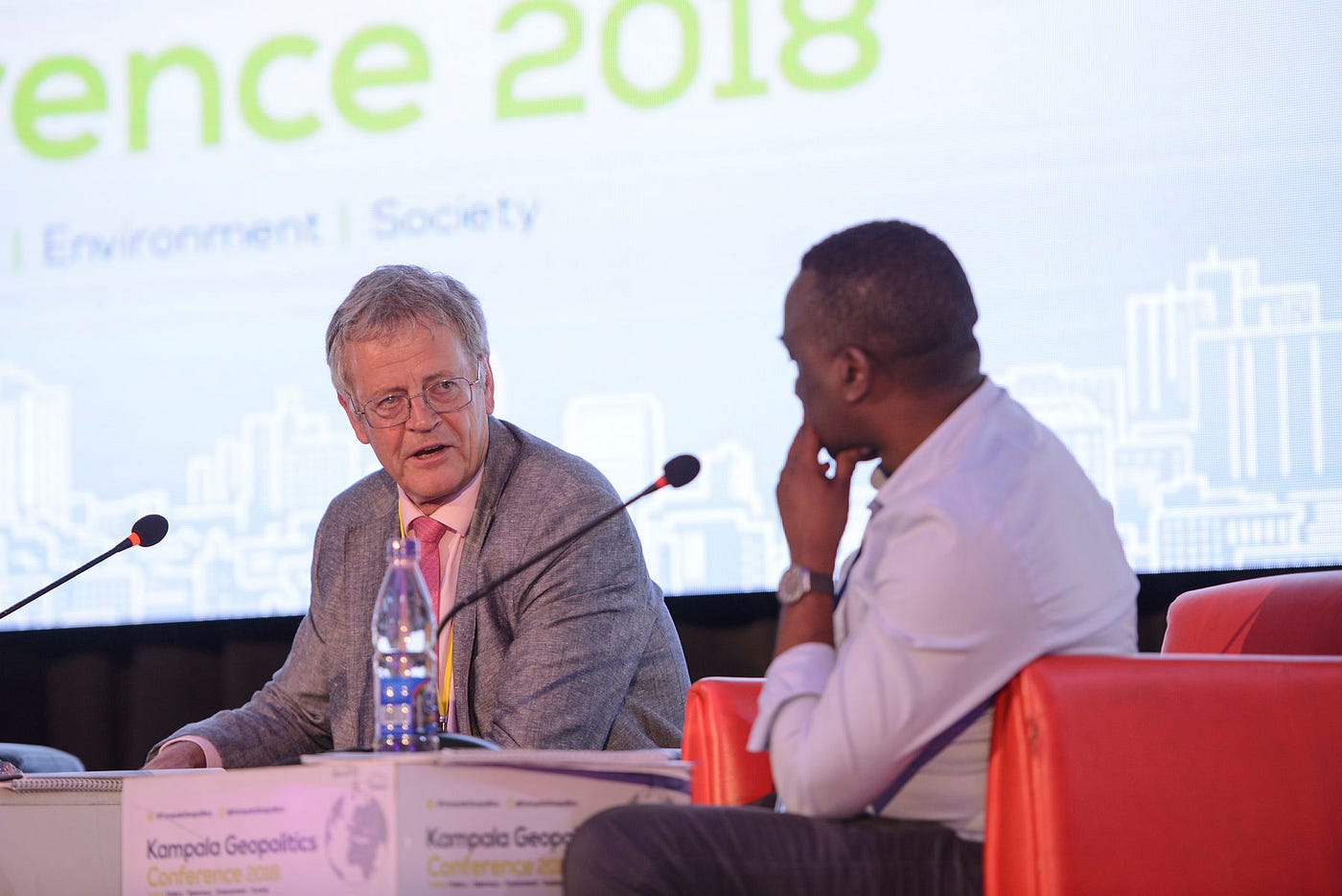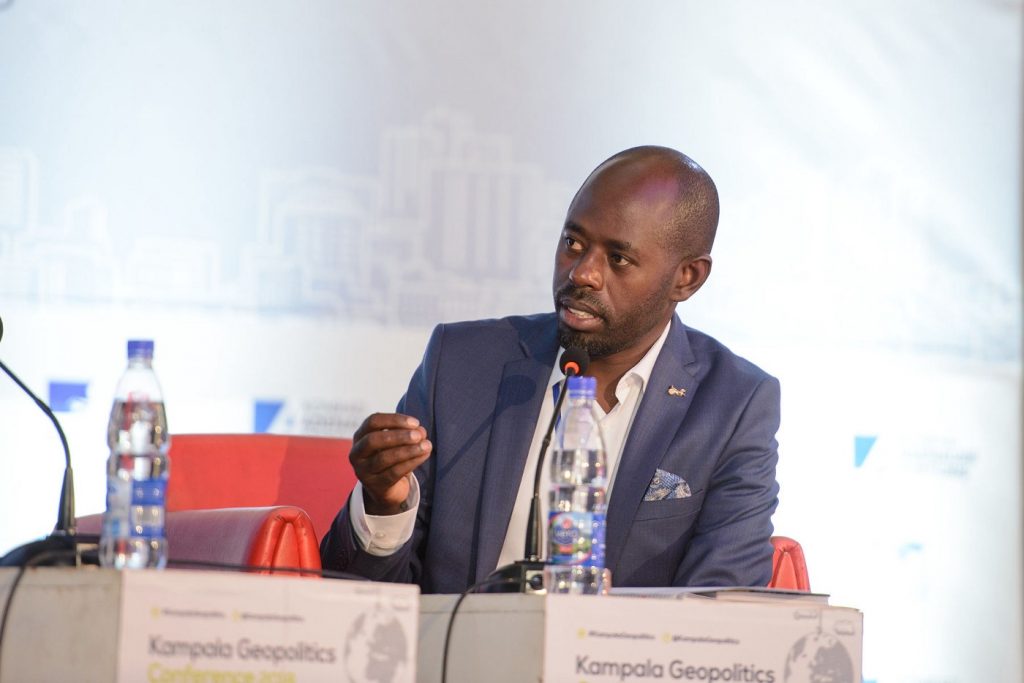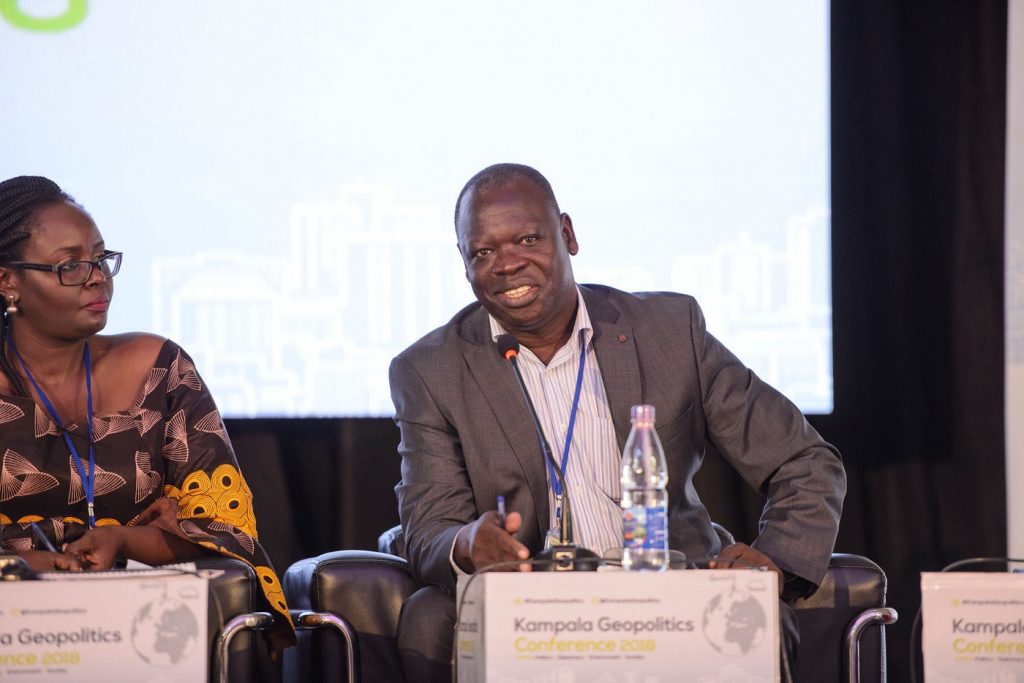Young people insist, the future is now
If the phrase, “the youth are the future” were a song chorus, it would be the most remembered and definitely the most sang. The phrase carries the promise that young people will be in charge in future, it provides hope, that things will be better for young people in tomorrow once things are done right today.
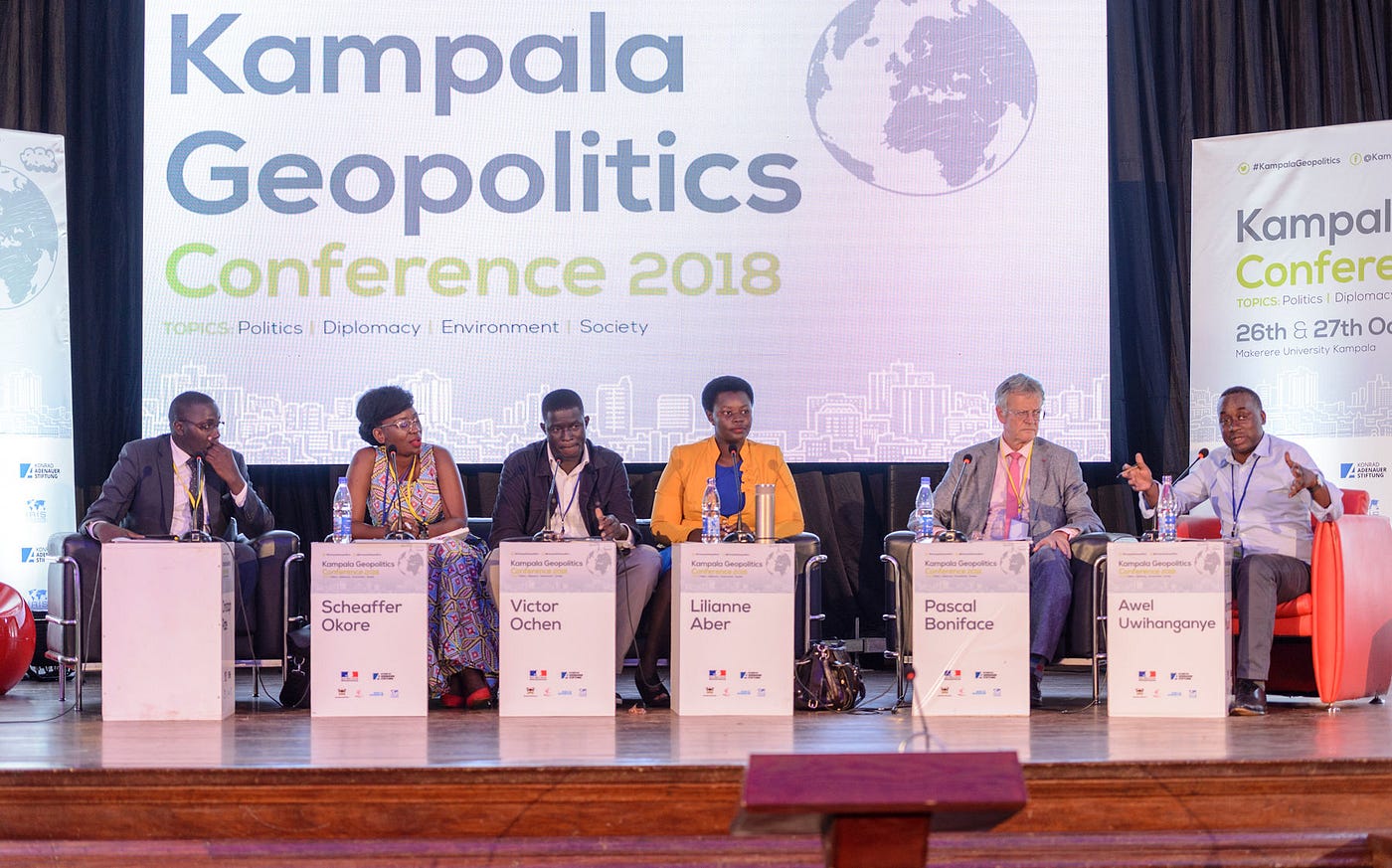
But are things being done right? Is the current generation giving hope to the young people? What happens when the older generation is not keen on passing the mantle to young people?
At the Kampala Geopolitics Conference organized by Konrad Adenauer Stiftung and the French Embassy on 26 -27 October 2018 at Makerere University, five panelists tackled the above questions under the theme; Youth is the future: what are we doing to give hope to the young generation?
Ivan Bwowe, a lawyer and former Guild President Makerere University, was unrepentant about his dislike for the phrase, “the youth are the future”.

“The promise that the youth are the future has been vulgarized. Some colleagues of ours have been telling us for the last 32 years that youth are the future; even before we were born,” he said.
Bwowe also blames Uganda’s education system for failing to equip young people with skills and knowledge they require.
“We are trained from childhood to pass exams. The education system should allow all of us to flourish, not a few of us,” he said.
He stressed the need for African governments to look at young people as an asset, after all they make more than half the population of most countries on the continent.
“African governments consider us a liability. We are the most endangered species that is a majority.”
Victor Ochen, the Executive Director AYINET, concurs, noting that government policies and actions must at all times protect the vulnerable people in society otherwise the cycle of unemployment among young people will not get broken.
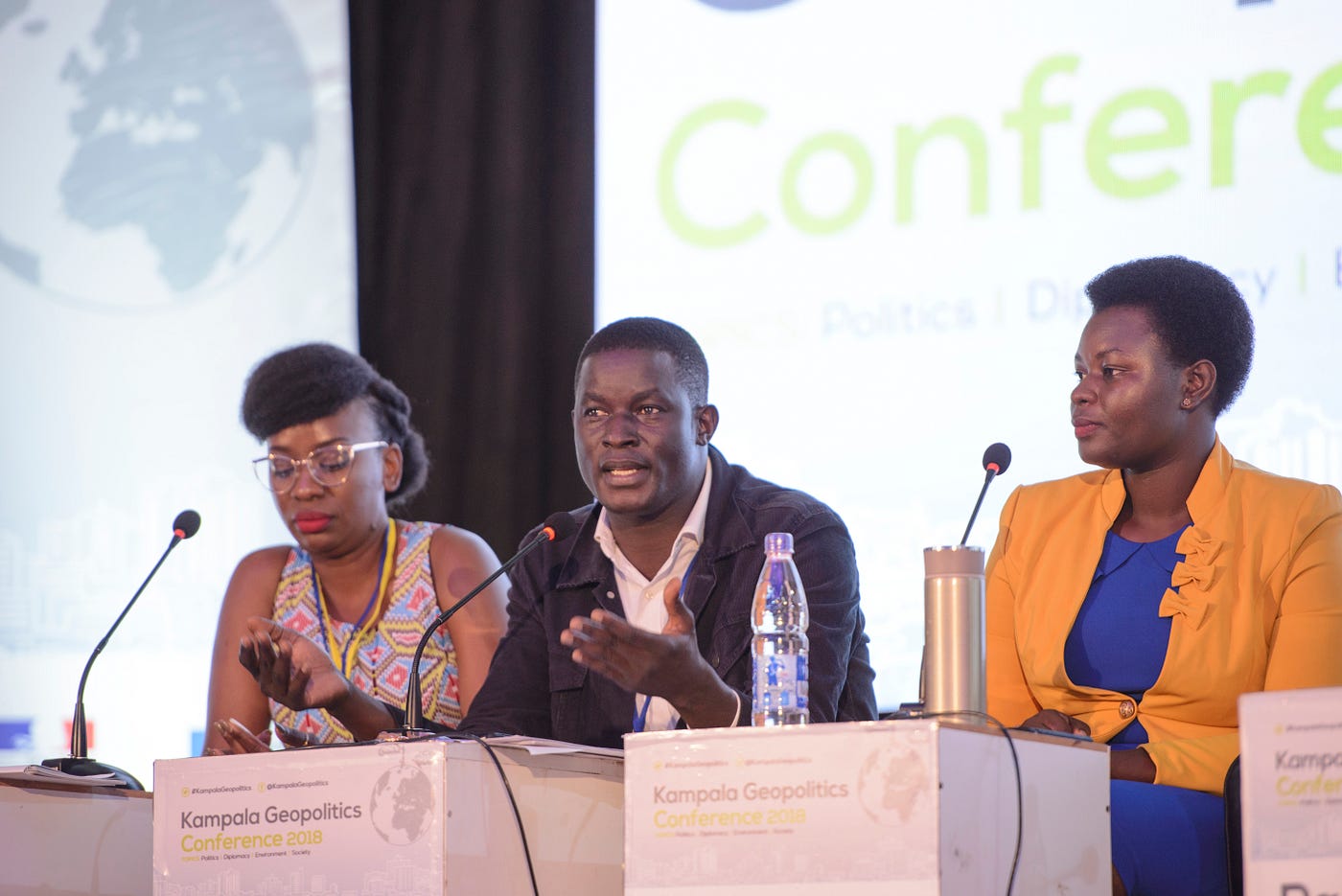
“After studying, youths fail to get jobs and people start asking, did you study unemployment? But there are people in this country who have 10 jobs, jobs that are for the same family, jobs that are for people from the same region,” Ochen lamented.
The 2015 Nobel Peace Prize nominee underscored the need for home-based solutions to issues afflicting young people, especially on the African continent.
“Why is it that when we have issues, we go to protest with our flags at the United Nations? We never see a Frenchman protesting here.”
He added: “I had to work all my life to get where I am today. Whenever I go abroad and come back home, people ask why I keep returning or if I have forgotten something here. I tell myself, it there’s poverty chasing young people out of the continent, it’s the reason I should stay.”
Ochen, who lived through the Lord’s Resistance Army war in northern Uganda, and did manual jobs including as a shoe cobbler, said no job is small.
“We need to move away from the politics of poverty where we make people poor so that you suppress them.”
Scheaffer Okore, the Vice Chairperson, Ukweli Party and Head of Programs at Siasa Place, Kenya, thinks that it’s unrealistic for governments to keep telling young people to entrepreneur themselves out of unemployment and yet systemic bureaucracy stands in the way.

She said government also needs to be very honest about its spending otherwise opportunities for young people will continue to shrink.
“You can’t have a big government and then tax people to fund those who are not even doing their job.”
Okore also appealed for honesty in demands that people make of young people, and for those in power to stop holding young people hostage owing to the roles they played in the past.
She said: “I hate the glamorization of the struggle. Don’t glamorize structural failure. We don’t have to go through the same struggle our forefathers went through as young people; it would mean they all failed us.
“Everybody is responsible for making the youth hopeful. Everybody wants you to have a voice, to be courageous until you stand up to them.”
However, Lillian Aber, the Chairperson National Youth Council, Parliament of Uganda and senior presidential advisor on youth affairs, believes that young people need to work on their attitude if things are to get better for them.
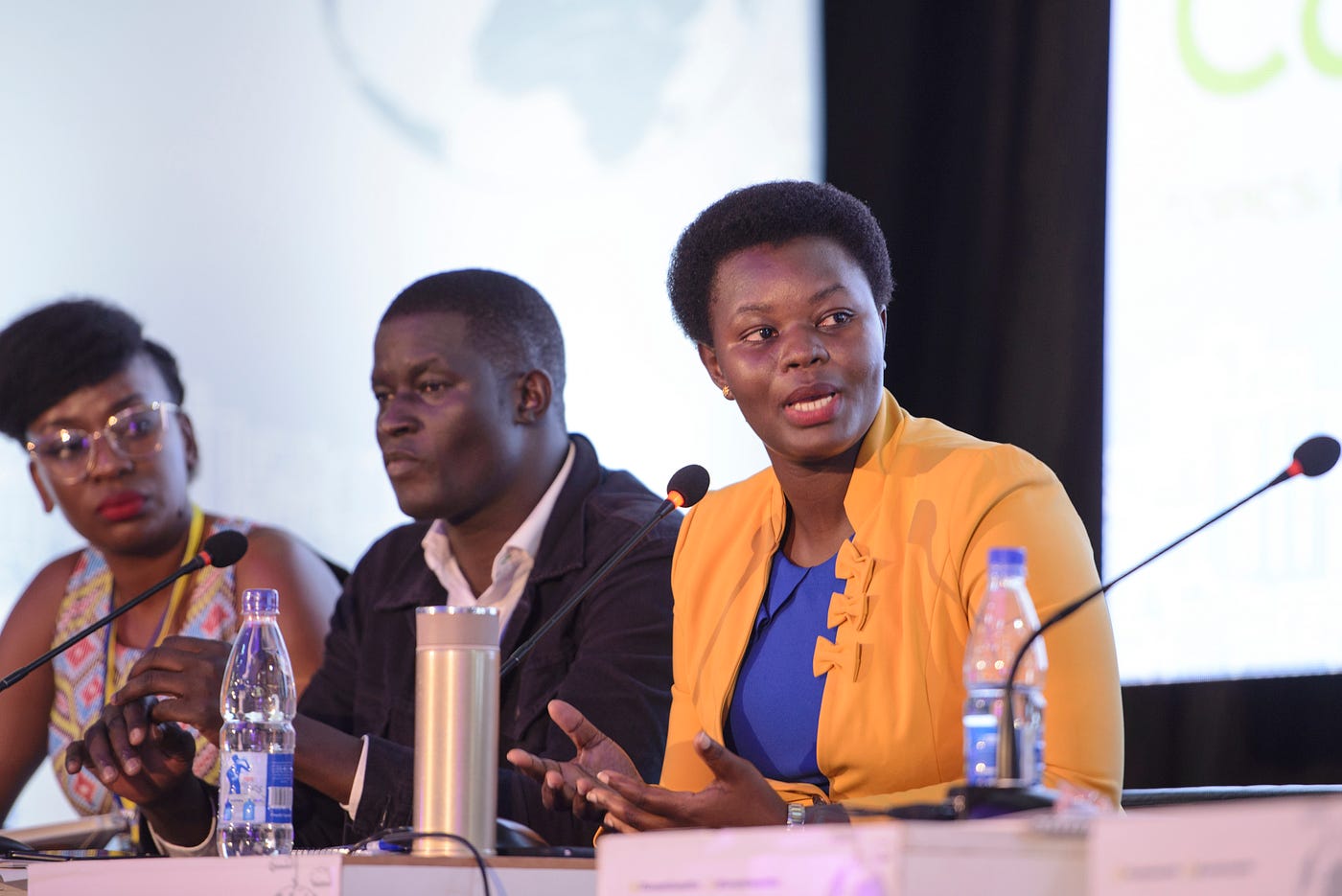
“What young people need is to be organized. We need to define what we need. We have the numerical strength. It starts with us. It starts with what attitude we have,” she said.
Aber said while several employment issues exist, including underpayment and underemployment, taking the initiative should be a must, because the country “needs young people in key positions of decision making”.
“No one is going to get you out of bed and give you a job.”
Pascal Boniface, the Founding Director IRIS, France, noted that in his country, the more educated a young person is, the more hopeful they are about their future.
